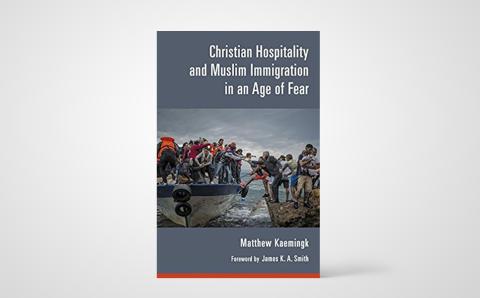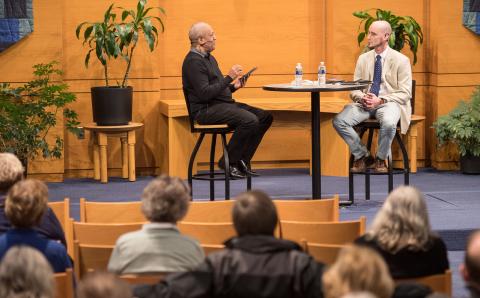Through his Dutch brogue,the weathered and white-haired Christian Reformed elder says to my father, “This is the true church!” We are leaving to transition to a Reformed Church in America congregation, mostly for their youth program, as I recall.
The elder isn’t happy. We are not necessarily looking for his blessing, but it’s clear we won’t get it anyway. According to him, we are leaving right for wrong, true for untrue. Even at 12, I’m keenly aware of the tension and wonder if we’re now on the precipice of hell.
My tradition holds “truth” in high regard. As I was taught in those early days and then in seminary, truth is held in the mind of God, deposited in the Scriptures, sorted by theologians into apprehensible categories, and assented to by the church. Truth is paramount.
And if the sermons I heard in those days were any indication, the apostle Paul seemed to “get it” more than anyone. Galatians and Romans got prime coverage, with occasional offerings from Isaiah and the gospels at Christmas, and the psalms on rare occasions. Never did I hear a sermon on the messier or more mysterious parts of Scripture such as Song of Songs, Lamentations, or Revelation.
I’m grateful for this catechesis. Yet why is it that when I look back, I see my own transformation emerged not so much through knowing more, but through pain and shame and failure, more often than not processed with therapists outside the church, not pastors?
In the midst of Paul’s grief in Philippians (mischaracterized as “the book of joy”), he proclaims that he wants to “know Christ,” but his “knowing” seems to require a journey. To know the “power of the resurrection,” it seems that we must participate in the “fellowship of his sufferings,” being conformed to Christ “in his death.”
Wow. That’s different. In this scenario, becoming like Jesus sounds a lot more complicated than right versus wrong. Real transformation isn’t accomplished through accumulating information, but by formation through the same wilderness journey Jesus endured.
Are our churches places of transformation? Do we steward death-to-resurrection journeys well? I don’t think so. My Reformed tradition is pretty fond of casting aspersions on prosperity preaching, but we’re not so attuned to our strategies for avoiding the painful wilderness journey of transformation. We live in our heads.
Our anxiety is raised amid theological disagreements and polity disputes and liturgical differences. It makes no difference whether you’re a so-called “conservative” or “progressive” Reformed Christian, the family dysfunction is the same. If you’re not thinking right about something, we come with fire and fury. We avoid the furnace of transformation by living in minds fixed on judging and comparing and critiquing. Perhaps we think we’re entitled to this precisely because we’re right.
As I get older, I’m drawn to stories of women and men who’ve become more like Jesus through lived participation in Christ’s sufferings. I’m drawn to letters written by Rutherford or Spurgeon amid depression and grief, to the dark nights of St. Teresa and St. John of the Cross, the Confessions of Augustine, and the honest introspection of Baxter. I’m drawn to Christians who’ve gotten over themselves, who (even if we have honest disagreements) engage with curiosity. I am drawn to vulnerable people, not militant truth warriors. I’m drawn to people who feel like they have more to learn, not those who’ve arrived.
Putting on the mind of Christ, it seems to me, is about going on a transformational journey with Jesus. It’s learning to walk with him, to ask questions, confess, cry, laugh, and just be. I’m learning. It’s a different kind of learning, and it’s taking a while. So re-“mind” me if I forget, Jesus.
Discussion Questions
- What experiences have you had with someone who is a “militant truth warrior”? What were some of the outcomes from such conversations?
- Looking back over your past, can you identify areas of spiritual transformation or growth? How much of that transformation can you attribute to knowing more information and how much to other factors including struggle, grief, service and the like?
- What are some of the ways our Reformed tradition has tried to “avoid the furnace of transformation by living in minds fixed on judging and comparing and critiquing”? How do we encourage one another instead to walk a similar wilderness journey that Jesus endured?
- The author asks, “Are our churches places of transformation?” Why? If not, how can we foster our churches to become places of transformation?
About the Author
Chuck DeGroat, associate professor of pastoral care and counseling at Western Theological Seminary in Holland, Mich., is the author of Leaving Egypt (Faith Alive) and Toughest People to Love (Eerdmans).








